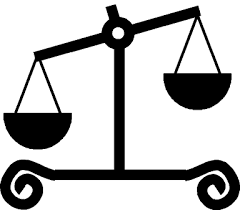Income Inequality Series
The Income Inequality Series Published by Seven Pillars Institute
1. The Causes of Income Inequality
One important factor contributing to different levels of wealth is people are paid different wages. There are several reasons why some people are paid millions while some merely earn minimum wage. READ MORE
2. The Consequences of Income Inequality
“Economic inequality” generally refers to the disparity of wealth or income between different groups or within a society. Often characterized by the aphorism “the rich get richer while the poor get poorer,” the phrase often refers more specifically to the gap in income or assets…READ MORE
3. Income Inequality and Its Effect on Political Inequality
Political races are expensive. Candidates are pressed by consultants and campaign management to raise exorbitant amounts of money to create lit pieces and other advertisements that may sway potential voters. Recently…READ MORE
4. Some Solutions to Economic Inequality
For most families in the US, incomes are stagnating as real wages remain steady or are actually declining. Stagnating incomes mean that the “middle class is too weak to support the consumer spending that has historically driven our …READ MORE
5. The Ethics of Minimum Wage Legislation
Minimum wage legislation is hotly debated. A minimum wage is the lowest hourly, daily or monthly remuneration employers legally have to pay to workers. The main purpose of the legislation is to ensure employers, who usually have higher bargaining power in the labor market, do not exploit their workers and that…READ MORE
6. Does Quantitative Easing Contribute to Income Inequality?
As Quantitative Easing (QE) lacks an extensive history, the monetary technique, despite recent use by numerous central banks, is fraught with controversy. QE occurs when a central bank increases the money supply, often by buying government bonds through open market operations from companies and institutions. The goal is to increase liquidity, borrowing, investments, and economic activity. However, QE is associated with some negative side effects, making it a last resort strategy used after traditional methods – such as when official interest rates are near zero – have been exhausted. One of the apparent downsides is QE increases income inequality. Is this claim legitimate? READ MORE.
7. Necessity and The Minimum Wage
Compare someone’s choice to buy a luxurious decoration with the purchase of a prescription that staves off death. While one of these choices is an aesthetic preference the other is a necessity of survival. The distinction between these choices separates economic ‘wants’ and ‘needs’. A dependence on survival needs forces human behaviour through naturally imposed duress, compromising our freedom of choice. A moral right to freedom or existence argues for the removal of this duress in favour of a default state, where survivalist compulsion is made irrelevant. READ MORE…
8. Pace University’s Wealth Inequality Workshop
The Wealth Inequality Workshop explores the philosophy of wealth’s distribution, and elaborates the principle theories brought to debates about the ethics of monetary inequality. Produced by Pace University and hosted by James Brusseau, this video documentary also features a thought experiment designed to penetrate the issue in practical terms. VIEW VIDEO…
9. Covid-19 Pandemic Worsens Inequality
COVID-19 highlighted inequalities in our societies. Half the global population lost income during the pandemic (1). By 2022, global unemployment will exceed 200 million workers (2) and 150 million people will be pushed into extreme poverty (3). Low-income and low-skilled workers shouldered the brunt of job and income losses (4). Meanwhile, the 2,365 world’s billionaires, enjoyed a 54% boost in their wealth during the pandemic, equivalent to an increase of 5 trillion dollars (5). To put these numbers into perspective, the wealth increase of the 10 richest men over the pandemic ($540 billion) could pay for everyone’s vaccines globally (6). READ MORE…

